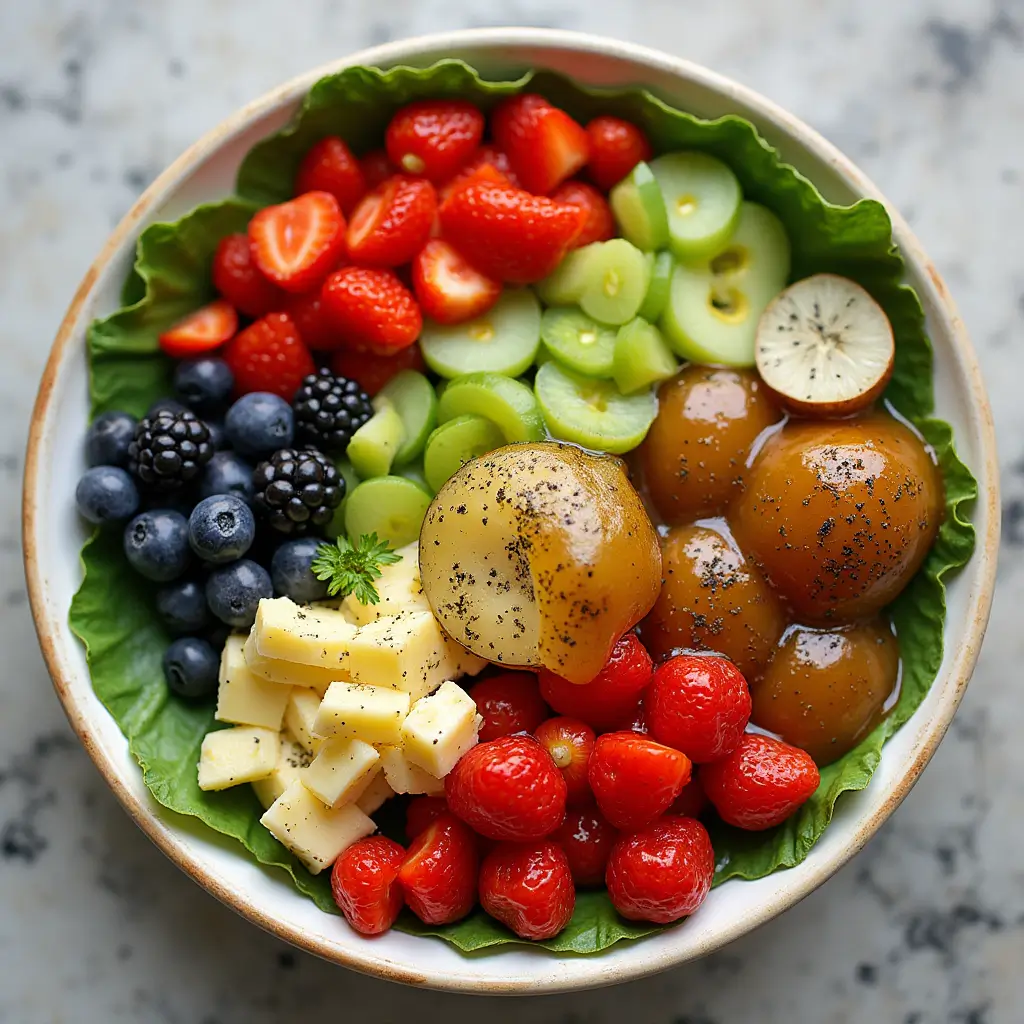1400 Calorie Meal Plan
Table of Contents
Ensuring that your baby receives the right amount of nutrients is crucial for their growth and development. A 1400 calorie meal plan can help meet the energy needs of a growing baby, providing them with essential vitamins, minerals, and macronutrients. This article will offer a comprehensive 1400 calorie meal plan that includes a variety of foods to promote optimal health. Additionally, we will explore a 7-Day Meal Plan for Ulcers to support digestive health.
Importance of a 1400 Calorie Meal Plan for Babies
A 1400 calorie meal plan is suitable for babies who require additional energy for rapid growth and active play. The right balance of carbohydrates, proteins, and healthy fats ensures that your baby is getting the necessary nutrients to support brain development, muscle growth, and immune function. The diet should include a variety of food groups, including dairy, fruits, vegetables, whole grains, and protein sources like meat, fish, and legumes.
1400 Calorie Meal Plan for Babies
A well-balanced 1400 calorie meal plan consists of three main meals and two to three snacks. The following meal plan provides a variety of nutrient-dense foods to meet your baby’s dietary requirements. Ensuring that each meal is balanced with essential macronutrients helps in proper digestion, growth, and overall well-being.
Including foods with different textures and flavors can also enhance your baby’s eating experience, making mealtime enjoyable. Parents should also consider incorporating iron-rich foods, as iron is crucial for cognitive development.

Moreover, calcium-rich foods are necessary for strong bones and teeth. Offering meals at regular intervals prevents energy dips and keeps your baby active throughout the day. Hydration is another key component, so be sure to provide adequate fluids along with meals.
This plan includes nutrient-dense options, ensuring that your baby gets the right mix of vitamins and minerals necessary for development.
Sample 1400 Calorie Meal Plan
| Meal | Food Item | Quantity | Calories |
|---|---|---|---|
| Breakfast | Scrambled egg with cheese | 1 egg + 1 tbsp cheese | 120 |
| Whole wheat toast with butter | 1 slice + 1 tsp | 110 | |
| Banana | 1 small | 90 | |
| Whole milk | 1/2 cup | 75 | |
| Morning Snack | Greek yogurt with honey and berries | 1/2 cup + 1 tsp honey | 120 |
| Almond butter on whole wheat crackers | 1 tbsp + 2 crackers | 140 | |
| Lunch | Grilled chicken with mashed sweet potatoes | 2 oz + 1/2 cup | 180 |
| Steamed broccoli | 1/4 cup | 30 | |
| Brown rice | 1/4 cup | 55 | |
| Watermelon | 1/2 cup | 25 | |
| Afternoon Snack | Cottage cheese with sliced peaches | 1/4 cup + 1/2 peach | 100 |
| Dinner | Salmon with quinoa and peas | 2 oz + 1/4 cup quinoa + 1/4 cup peas | 200 |
| Avocado slices | 1/4 avocado | 80 | |
| Evening Snack | Oatmeal with cinnamon and raisins | 1/4 cup oats + 1 tsp raisins | 100 |
| Warm milk | 1/2 cup | 75 | |
| Total | – | – | 1400 |
Nutritional Considerations for a 1400 Calorie Meal Plan
When creating a 1400 calorie meal plan, it’s important to consider the nutritional quality of the foods. Here are some key factors:
- Protein Sources: Incorporate lean meats, eggs, dairy, and plant-based proteins like beans and lentils.
- Healthy Fats: Use sources such as avocado, nuts, seeds, and olive oil to support brain development.
- Complex Carbohydrates: Opt for whole grains like brown rice, quinoa, oats, and whole wheat bread.
- Vitamins and Minerals: Ensure your baby gets sufficient vitamins such as Vitamin D, calcium, and iron from dairy, fruits, and vegetables.
- Hydration: Offer plenty of fluids, including water and milk, to keep your baby hydrated.
In addition to ensuring a proper balance of nutrients, meal variety is essential. Babies may develop food preferences at an early stage, so exposing them to a broad range of textures and flavors can help promote healthy eating habits in the future. Including colorful fruits and vegetables in meals can also make them more visually appealing, which can encourage babies to eat a wider variety of foods. Additionally, cooking methods such as steaming, roasting, or pureeing can alter the taste and texture of foods, making them more suitable for your baby’s palate.

It’s also important to watch for signs of allergies or food sensitivities. Introducing new foods one at a time allows parents to identify potential allergens. Common allergenic foods include dairy, eggs, nuts, and seafood. If any signs of an allergic reaction, such as rashes, vomiting, or breathing difficulties, occur after introducing a new food, it is crucial to consult a pediatrician immediately. Keeping a food diary can help track which foods have been introduced and any reactions that may occur.
Additionally, understanding Nutritional Requirements for Babies 0-12 Months can help parents make informed choices when planning meals. Babies need specific amounts of key nutrients such as iron, calcium, and healthy fats to support rapid growth. Ensuring a varied diet with age-appropriate foods can help meet these nutritional demands while promoting healthy eating habits.

Tips for Following a 1400 Calorie Meal Plan for Babies
- Introduce New Foods Gradually – Babies may take time to adjust to new textures and flavors. Introduce new foods one at a time and monitor for any allergies.
- Balance Macronutrients – Ensure each meal contains a good balance of proteins, fats, and carbohydrates.
- Encourage Self-Feeding – Allow your baby to explore foods with their hands to promote fine motor skills.
- Limit Processed Foods – Avoid overly processed or sugary foods and focus on whole, natural foods.
- Consult a Pediatrician – Before making significant changes to your baby’s diet, consult a healthcare provider to ensure they are receiving adequate nutrition.
Conclusion
A 1400 calorie meal plan provides babies with the energy and nutrients they need for healthy growth and development. By including a variety of nutrient-rich foods and maintaining a balanced diet, you can support your baby’s overall well-being. Always prioritize whole foods, hydration, and portion control while making mealtimes enjoyable and stress-free for both you and your baby.

